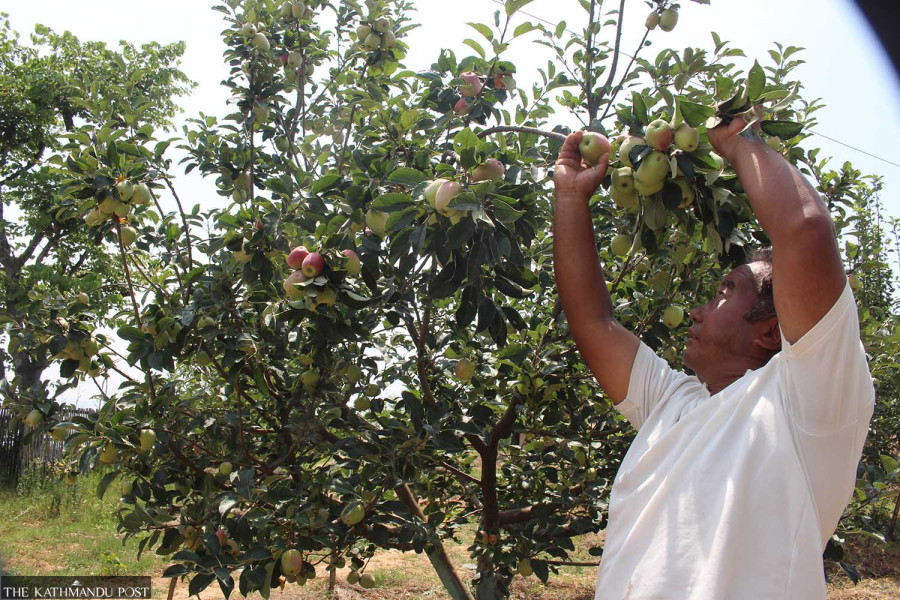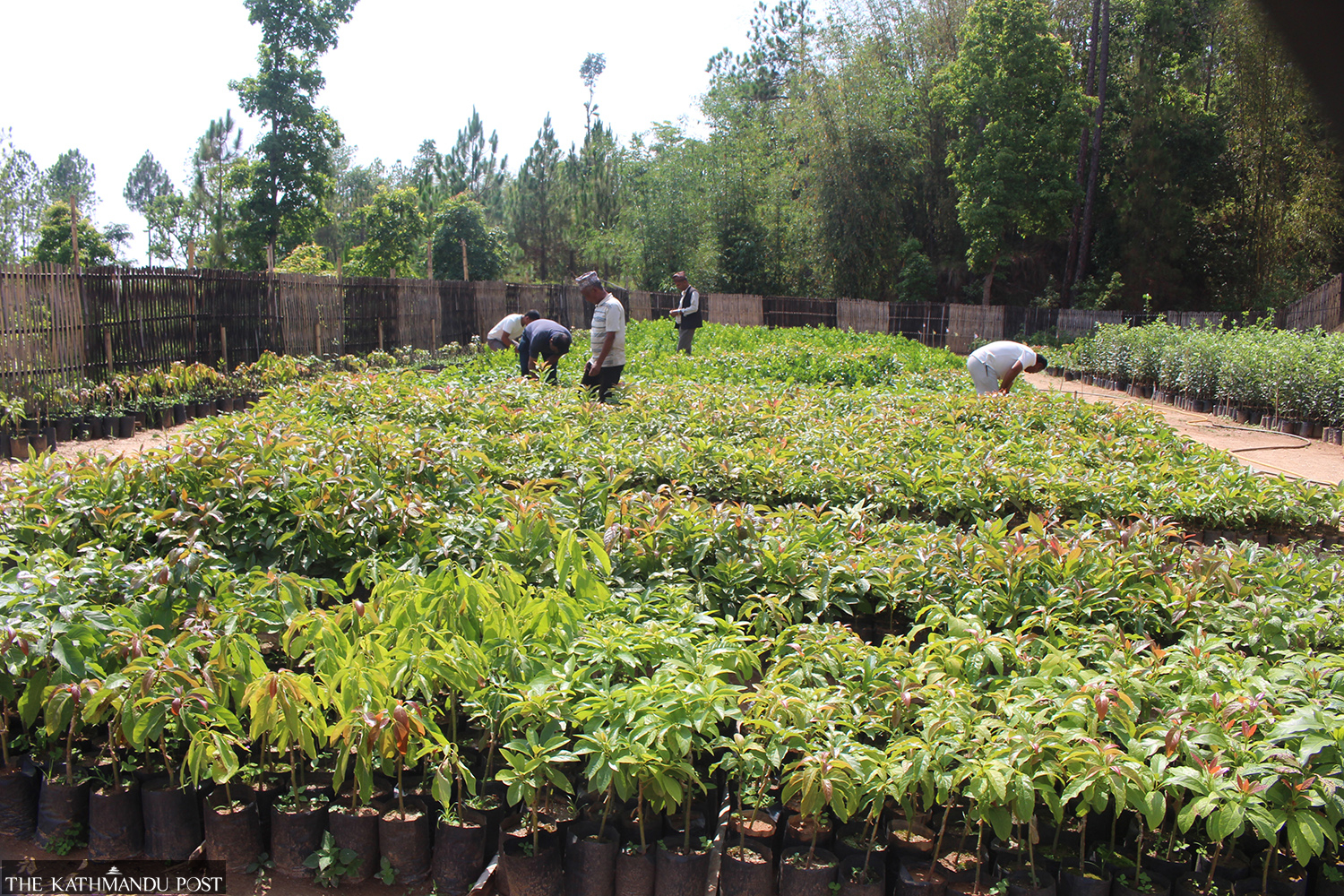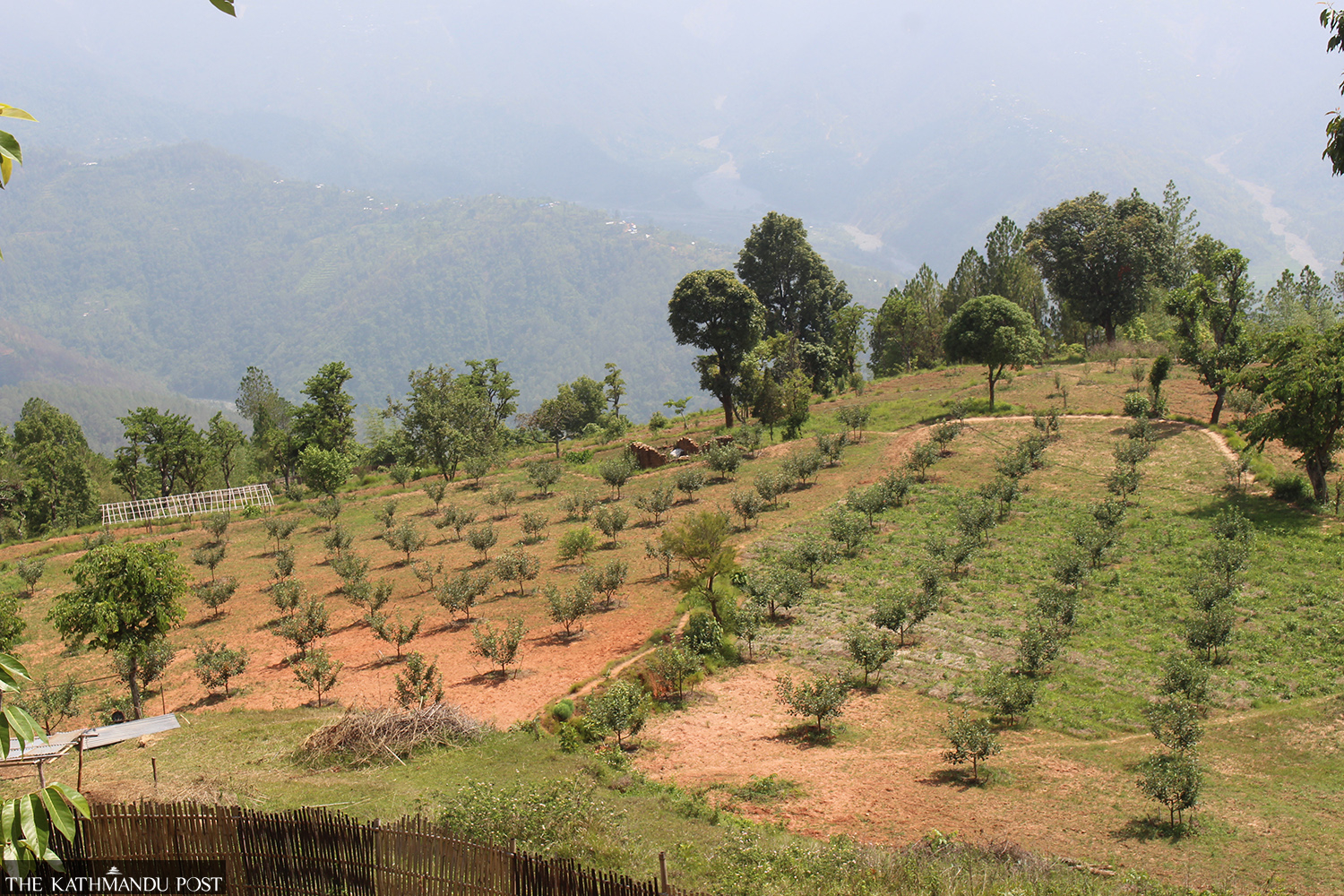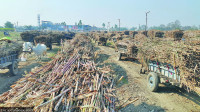Money
Permaculture breathes new life into ghost towns
Dhankuta is seeing a revival as people start returning to their villages, thanks to a new way of farming.
Ramesh Chandra Adhikari
Chaubise Rural Municipality in Dhankuta district is littered with abandoned houses and overgrown farms as its residents flee never-ending deprivation.
No drinking water, no irrigation, no roads and no sanitation. The people decided they'd had enough, and just got up and left.
In the last one and a half decades, many villages in the rural municipality have become empty. The vacant houses are falling apart, and the fields are covered with weeds as there is nobody to tend to them.
Kuruletenupa is an example of the ghost towns that are spreading across the eastern hill district of Dhankuta. Losing hope of seeing any improvement, the inhabitants left in search of a better life in other districts, mostly to the Tarai flatlands in the south.
A government report says the exodus of Nepalis from the hills to the plains is leading to overcrowding in the Tarai, which accounts for 17 percent of the country’s area.
According to the Population Census 2021, the Tarai is home to 15.63 million Nepalis, or 53.61 percent of the country’s total population of 29.16 million.
Development experts and planners say swelling migration to the Tarai strip has caused agricultural lands in the country's food basket to shrink. Housing development on the fertile farmlands means Nepal could become more food-insecure in the future, they say.
Hill districts like Dhankuta, Ramechhap, Khotang, Manang, Bhojpur and Tehrathum witnessed the fastest population loss in the past decade.
But Dhankuta is seeing a revival of sorts. People are returning to their villages, thanks to a new way of farming called permaculture.
Permaculture is an innovative framework for creating sustainable ways of agriculture and productive ecosystems which have the diversity, stability and resilience of natural ecosystems. It is the concept of utilising land, resources, people and the environment.

Lal Bahadur Tamang is among those who have returned to their villages. Tamang had migrated to Urlabari, Morang. Dirgha Man Tamang, who was thinking of moving to Letang, Morang, has decided to stay in his village.
Four years ago, a group of senior farmers established the Tamor Permaculture Learning Centre at Banduke Danda in Chaubise-3 in a bid to stem the out-migration and lure back those who have left.
Spread over 103 ropanis of land and situated at an elevation of 1,400 metres, the centre promotes permaculture as a modern and sustainable farming system. The centre contains over 100 apple trees.
Tamang said he and his group have utilised the abandoned land in the village which occupies wards 3 and 4 of Chaubise Rural Municipality.
He has received training in raising beds, plantation, low-input high-yield methods, grafting, making plastic ponds and vermicompost.
Bhoj Kumar Kafle, local resident and one of the leaders of the campaign, said his decision to be part of permaculture had started paying off.
According to villagers, an American national, Rajiv Goyal, who had come to the village for research, had inspired them to establish the centre.
“Under Goyal’s lead, local youths were provided training. Villagers then managed the initial financial assistance to establish the centre,” said Lokendra Kumar Yakkha, chairman of the centre.
The centre has an annual income of Rs300,000 and aims to earn at least Rs1.5 million this year.
"The villagers have started producing orange, walnut, Japanese pear, macadamia nut, lemon and other fruits," said Yakkha.
The centre produces around 30 types of seasonal fruits, including apple, apricot, pear, peach and avocado.
“Once considered a wasteland, it now has an abundance of fruits,” said Yakkha.
The centre has been distributing fruit saplings produced in its nursery to locals for free. Farmers from other villages have to buy them.
The income is utilised for the management of the centre and to pay the salaries of nine workers who have been hired by the centre.
“The centre has an investment of more than Rs30 million,” Yakkha said.
“Many villages were declared drought-affected. Now the villagers are returning. The local government is under pressure to address the drinking water scarcity, irrigation, road infrastructure and other issues in the area now,” said Raj Kumar Chemjong, chairman of the rural municipality.
“We are working on a plan centred on Kuruletenupa,” said Chemjong. The rural municipality had allocated Rs9 million for the 12-km Shukrabare-Lapse-Kuruletenupa road in the last fiscal year.

More than 300 families from Kuruletenupa and around 200 from Bajthala and Andheri villages had migrated to other parts of the country in the past 15 years, according to the statistics of the rural municipality.
Chemjong argues that the actual figure might be higher as many migrate without informing the rural municipality.
“Half of the 886 households in Kuruletenupa had migrated,” Chemjong said.
Pushpalal Dhungana, 98, of Kuruletenupa said he had seen people leaving the village one after another. “Once lively villages became lonely in no time.”
Tek Prasad Bhandari, another local, said that the people started leaving the villages in droves especially after 2006.
“Drinking water scarcity and lack of other basic amenities were the reasons for migrating to other areas permanently,” said Bhandari.
Once barren, Chaubise Rural Municipality has now become fertile. It has been receiving some visitors too. They come to see the green organic farm and the impressive achievements of the returnees.
Gopi Krishna Bhandari of Kurule in Chaubise-3, who left the police force as a sub-inspector and is engaged in commercial goat farming, says the permaculture project has given people hope. “This has become the fruit of my continued stay in the village through hardships. People are increasingly becoming convinced to drop their migration plans or to return to their ancestral village by buying back their sold property.”
After learning about the change in their place, people who left earlier are said to be inquiring with those who continue to stay back about their prospects of returning.




 8.65°C Kathmandu
8.65°C Kathmandu.jpg)













